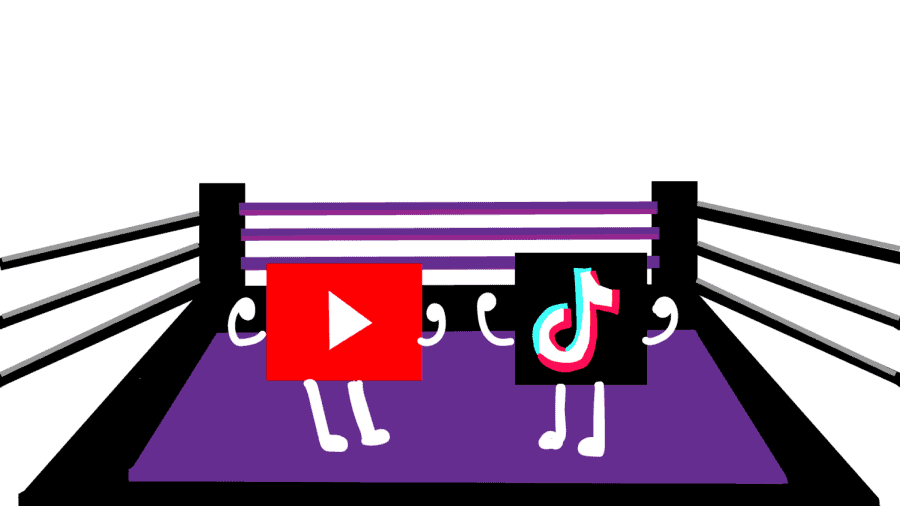Social media’s capacity for chaos
April 10, 2022
While social media existed in various less successful and narrow forms in the 1990s, it didn’t catch its big break until the 2000s. This year, there are an estimated 3.96 billion social media users worldwide.
Elliot Panek, an associate professor of journalism and creative media with a focus on social media, said researchers refer to social media platforms as “mass-personal.”
“That’s basically a user posting something on a platform, and the audience for that could be one person or it could be a billion people, and you don’t really know who the audience is,” Panek said.
Panek said he believes mass-personal communication is a primary issue driving social media hostility.
“If the audience is a bit more limited, and it’s a bit more like small group communication, there seem to be fewer problems,” Panek said. “People get to know one another and feel accountable to some extent and empathize with other people even though they’re not in the same room.”
Greg Vander Wal, the executive director of the UA Counseling Center, said social media interactions harbor disconnection.
“Any sort of bullying or exclusion can be a real problem,” Vander Wal said. “I think it’s a lot easier to engage in some of those destructive and harmful behaviors when you’re just typing, or interacting between a social media site than you would in person with someone.”
According to a 2021 Anti-Defamation League survey, 41% of Americans who responded said they had experienced online harassment.
Hannah King, a sophomore majoring in speech pathology, said she doesn’t believe the benefits of social media outweigh the harassment or miscommunications.
“I think that it’s a positive thing because it is a way for us to stay connected with people in general, but I also have the opinion that it can be negative because things can be swayed in a different direction or you can have miscommunications,” King said. “People will often make fun of people. People are mean on social media.”
Some critics point their fingers at Mark Zuckerberg, Facebook and the other tech giants. In a 2021 NPR interview, Yael Eisenstat, the ex-head of election integrity operations at Facebook, discussed concerns from her time working at Facebook.
Eisenstat said she noticed the lack of moderation in regard to political advertisements, and when paired with the algorithm, it made for the “perfect storm.”
When she suggested changes to the platform, such as fact-checking political advertisements, she said she was given the cold shoulder.
“I was pushed out for these kinds of ideas. … There just wasn’t an appetite from leadership for that,” Eisenstat said.
An internal Facebook report found the company helped incite the Capitol riot.
Panek said that in smaller communities online, hostility is lower due to an understood accountability among one another; however, when a community grows larger, toxicity ensues.
“I would say it’s more of a tool that can be used for good or evil,” Panek said. “I don’t think they’re inherently good or bad. It depends a lot on who’s using it, how they’re using it, and why they’re using it, but also on the design of the particular platform we’re talking about.”
King said she has found herself in cycles of social media overuse, she doesn’t believe that it is an issue, nor does she believe interpersonal relationships are at risk of being replaced by social media.
She said social media has not gotten in the way of her personal life, but she has been alarmed by notifications alerting her of her social media usage and has tried to change her habits accordingly.
Vander Wal said an individual’s usage dictates the experience.
“Just like with any tool, or anything that we spend our time on, it has the potential to be really good and bring about a lot of positives, but it also has the potential to be overused and to be misused,” Vander Wal said. “If we’re finding an appropriate place for social media within our lives as we continue to work towards our goals and values, I think it can be a positive thing, and part of that just means being intentional.”
Questions? Email the culture desk at culture@thecrimsonwhite.com.





















